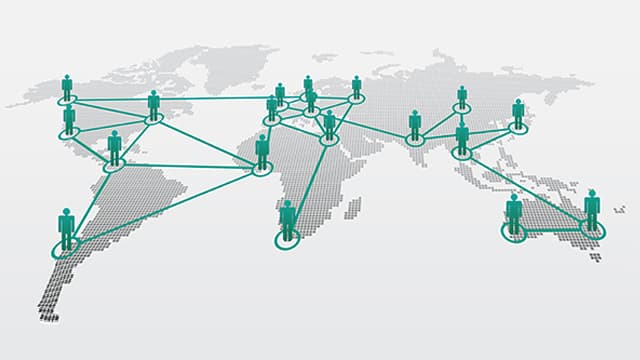"Achieving success in cell and gene therapy
development requires not only innovation but also a comprehensive strategy that
addresses clinical, operational, and regulatory challenges. At Tigermed, we are
committed to supporting our clients through this complex landscape to bring
life-changing therapies to patients worldwide."
— Dr. Jiansong Yang, CSO and Head of CGT
Business Unit, Tigermed
The cell and gene therapy (CGT) sector is
experiencing explosive growth and innovation. In late 2023, the first
CRISPR-based gene-editing therapy, Casgevy,
received FDA approval, signaling a significant advancement in medical science.
This momentum continued into 2024 with the FDA's accelerated approval of Tecelra in August, the first engineered
T-cell therapy for a solid tumor cancer in the U.S.
Globally, over 4,000 CGT therapies are
currently in development, with 31 gene therapies and 68 non-genetically
modified cell therapies already clinically approved. These advancements offer
immense hope for patients but also present complex challenges for sponsors.
Navigating these challenges effectively is crucial for achieving regulatory
approval and clinical success.
The Expanding CGT Pipeline: More Than 4,000 Therapies in Development
Of the 4,000 CGT therapies in development,
gene therapies constitute over half of this pipeline, and CAR-T therapies
remain predominant among genetically modified cell therapies. Oncology and rare
diseases are the most common therapeutic areas, with oncology representing a
majority of 54% in CGT development
for rare conditions.
Recent Approvals
The CGT field is rapidly evolving, with
several notable therapies approved across different regions, highlighting the
global impact of these innovative treatments. These include:
Tecelra
(Afamitresgene Autoleucel)
●
Developer: Adaptimmune Therapeutics
●
Indication: Unresectable or metastatic
synovial sarcoma in adults
●
Approval: U.S. FDA accelerated approval
in August 2024
●
Significance: Marks the first engineered
T-cell therapy for a solid tumor approved in the U.S., offering a new treatment
option for synovial sarcoma patients after over a decade.
Casgevy
●
Developer: CRISPR Therapeutics and
Vertex Pharmaceuticals
●
Indication: First CRISPR-based
gene-editing therapy
●
Approval: Received FDA approval in late
2023
●
Significance: Represents a milestone in
gene-editing therapies, paving the way for future CRISPR-based treatments.
Carvykti
(Ciltacabtagene Autoleucel)
●
Developers: Legend Biotech and Janssen
Biotech (a subsidiary of Johnson & Johnson)
●
Indication: Relapsed or refractory
multiple myeloma
●
Approval:
o
U.S.: FDA approval was received in 2022
for patients who have received at least four prior lines of therapy.
o
China: Approved by China's National
Medical Products Administration (NMPA) in August 2024 for patients who have
received at least one prior therapy.
●
Significance: Carvykti is one of the
first CAR-T cell therapies approved for multiple myeloma in the U.S. and China,
demonstrating global progress in CAR-T therapy development.
While recent approvals highlight the
exciting potential of CGT therapies, the road to regulatory success is still
fraught with challenges, especially in manufacturing. These hurdles can slow
approvals and keep life-changing treatments from reaching patients as quickly
as hoped.
Manufacturing Challenges Continue to Hinder CGT Approvals in 2024
Despite the remarkable advancements,
manufacturing remains a significant hurdle for sponsors seeking regulatory
approval. The complexity of CGT manufacturing processes, combined with
stringent regulatory requirements, often leads to delays, increased costs, and,
in some cases, complete response letters from regulatory agencies.
Such is the case for some sponsors seeking
approval for their CGT therapies this year.
One company received a complete response
letter from the FDA requesting additional Chemistry, Manufacturing, and
Controls (CMC) information, specifically concerning validation requirements for
certain manufacturing and release testing methods. Another company also
received a complete response letter this year, with the FDA requesting more CMC
information from the drugmaker.
The high cost of manufacturing and
commercialization comes from the costs of reagents, Good Manufacturing Practice
(GMP) facilities, research and development, and other operational expenses. For
example, manufacturing vector-based gene therapies can cost millions of dollars
per batch, varying widely depending on the complexity and scale.
Expenses also compound when considering the
level of scrutiny paid to CGT therapies by regulators. Sponsors are expected to
provide comprehensive safety data and demonstrate the selectivity and efficacy
of their investigational therapies. Ongoing concerns regarding the risks of
genotoxicity from integrating vectors or gene-editing methods means more
testing is required to prove drug safety.
Taken together, the exorbitant price tied
to CGT therapies makes regulatory setbacks more costly for sponsors—and places
even more pressure on getting it right the first time.
Operational Challenges in CGT Clinical Development
Alongside manufacturing and regulatory
hurdles, sponsors face significant operational challenges when conducting
clinical trials for CGTs. These challenges can impact timelines, budgets, and,
ultimately, the development program's success.
Patient Recruitment
and Retention
CGT therapies predominate the rare disease
space as an excellent biological solution for genetic conditions. Identifying
and enrolling eligible patients for rare diseases and small affected
populations is difficult due to the rarity of conditions and strict inclusion
criteria. Delays in recruitment can extend trial timelines and compound costs.
Further, the target patient population may be geographically dispersed,
requiring coordination across multiple sites and regions. This increases
logistical complexity and resource requirements on the sponsor.
Complex Protocols
and Treatment Regimens
CGTs often involve personalized
treatment plans, posing unique challenges due to the need for individualized
treatment plans. These therapies often require seamless coordination between
manufacturing and clinical teams to ensure patient-specific products are
produced, processed, and delivered on time. The complexity of aligning these
processes can create logistical hurdles, particularly in managing the
production schedule for each patient.
As a result, scheduling conflicts and
extended wait times can arise, which may delay treatment and impact patient
outcomes. The intricate nature of personalized CGTs means any disruption in
manufacturing or coordination can significantly slow down therapy
administration, making efficient planning and execution critical for success.
Long Follow-up
Periods
Regulatory agencies frequently mandate
long-term follow-up for CGT trials to monitor potential delayed adverse events,
given the complexity and novel mechanisms of these therapies. This requirement
ensures patient safety over time, especially for therapies that involve genetic
modification or long-lasting cellular effects.
However, this extended monitoring
significantly increases the duration and cost of clinical trials. Sponsors must
allocate additional resources for long-term patient tracking, data collection,
and regulatory reporting, which can delay the overall development timeline and
strain budgets. These factors add complexity to an already challenging clinical
trial process.
Regulatory
Compliance and Data Management
Regulatory compliance in the CGT space
is particularly challenging due to the constantly evolving landscape across
different regions. Staying up-to-date with shifting regulations is crucial, as
non-compliance can lead to significant setbacks such as trial holds,
rejections, or requests for additional data. For sponsors operating globally,
navigating these regulatory differences adds complexity to the trial process,
increasing the risk of delays.
Ensuring accurate and timely data
collection is critical, especially for trials involving complex endpoints and
biomarkers. Inconsistencies or delays in data reporting can slow the analysis
process and hinder submission timelines, ultimately impacting the trial's
progress. Managing these data requirements efficiently is essential to avoid
bottlenecks that could jeopardize the overall success of the development
program.
Supply Chain and
Logistics
Maintaining the integrity of
patient-derived materials in CGT development is critical, and it relies on
stringent chain-of-custody protocols. Ensuring these materials are correctly
tracked from collection to administration is essential to preserve their quality
and efficacy. Any breach in these protocols, such as improper handling or
documentation errors, can compromise the therapy, potentially endangering
patient safety and leading to delays or costly re-manufacturing efforts.
Many CGTs require cold chain logistics to
maintain product stability during transportation and storage. Managing these
temperature-sensitive therapies adds a layer of complexity, as even slight
deviations can lead to product degradation. This raises logistical costs and
heightens the risk of therapy failure, making precise cold chain management a
critical aspect of CGT development and delivery.
Site Training and
Preparedness
Clinical sites are crucial for successfully
administering CGTs, but they require specialized training to manage the complex
procedures and regulatory requirements unique to these therapies. This need for
training can limit the number of qualified sites available, potentially
constraining trial execution and impacting patient access to innovative
treatments. Operational readiness is vital; sites must have the necessary
infrastructure and protocols to accommodate CGT-specific needs. Delays in site
activation due to inadequate preparedness can hinder study timelines, making it
essential to ensure that clinical sites are both well-trained and operationally
equipped to optimize trial efficiency and advance patient care.
Finding the Right Path Forward for CGT Development
Navigating these operational challenges
requires meticulous planning, robust systems, and experienced partners who
understand the unique demands of CGT clinical trials. Working with a knowledgeable partner can significantly enhance a
sponsor's ability to streamline clinical operations and mitigate risks.
Tigermed: Your
Partner in CGT Clinical Development
Tigermed offers
comprehensive solutions to address the operational complexities of CGT clinical
trials.
●
Work with an integrated team of experts. The Tigermed CGT team is an integrated group of professionals who
work collaboratively to provide seamless support across all stages of clinical
development, ensuring optimal outcomes.
●
Simplify patient recruitment and retention. Sponsors have access to an extensive network of over 200 experienced
clinical sites with expertise in CGT trials. We provide customized plans to
identify and retain patients, leveraging relationships with patient advocacy
groups.
●
Ensure smooth, budget-friendly clinical trial execution. Tigermed leverages specialized teams that are proficient in managing
intricate CGT protocols. We assist sponsors with proven methodologies to keep
trials on schedule and within budget.
●
Eliminate uncertainties in compliance, data management, and supply
chain. Tigermed has expertise in navigating
regional regulatory requirements and ensuring compliance. Sponsors can also
make use of our robust electronic data capture (EDC) systems and real-time data
monitoring. We also have secure systems to track patient materials from
collection to administration. This includes end-to-end cold chain logistics
management to preserve product integrity.
●
Get your trial sites ready. Tigermed has
customized training programs and operational readiness assessments to ensure
sites meet all necessary requirements before activation.
Whatever
your needs, Tigermed offers tailored, integrated services to streamline your
clinical trials. From early development to
post-marketing, we provide services like CMC consulting, PK/PD studies, GLP
safety studies, medical affairs, biometrics, and laboratory testing.
"Operational
excellence is the cornerstone of successful CGT clinical development. At
Tigermed, we provide tailored solutions that address the unique operational
challenges of CGT trials, enabling our clients to advance their therapies
efficiently and effectively."
— Dr. Jiansong Yang, CSO and Head of CGT
Business Unit, Tigermed
Summary
The cell and gene therapy sector is at a
pivotal moment, characterized by rapid innovation and significant clinical
advancements. Approvals like Casgevy and Tecelra underscore the transformative
potential of CGTs and highlight the complexities sponsors face in bringing
these therapies to market.
By understanding and addressing operational
challenges, adopting best practices, and partnering with experienced CROs like Tigermed, sponsors can navigate the
intricate landscape of CGT development more effectively and accelerate the
delivery of life-changing therapies to patients.
References
- Adaptimmune Therapeutics Press Release. "Adaptimmune Receives U.S. FDA Accelerated Approval of
Tecelra® (afamitresgene autoleucel)." August 1, 2024.
- Legend Biotech Press Release. "Legend Biotech Announces Approval of Carvykti®
(Ciltacabtagene Autoleucel) in China for the Treatment of Relapsed or
Refractory Multiple Myeloma." August 27, 2024.
- CRISPR Therapeutics and Vertex Pharmaceuticals
Press Release. "CRISPR Therapeutics and
Vertex Announce FDA Approval of Casgevy™ (Exagamglogene Autotemcel)."
December 2023.








